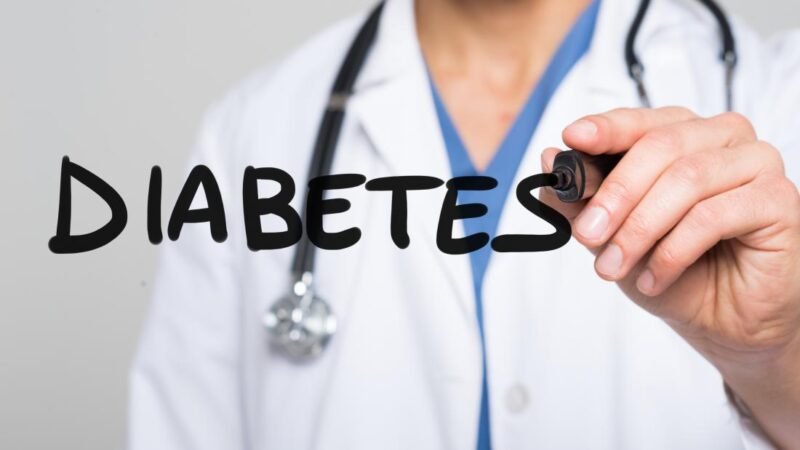Why Do I Feel Worse After My B12 Injection?

You may have heard that B12 shots are all the rage. Vitamin B12, also called cyanocobalamin, is an important nutrient that helps our brains work, makes red blood cells, and builds DNA. Most of us get enough B12 from the foods we eat, but it is thought that about 12% of people don’t get enough of this important vitamin. In this article, you can learn why do I feel worse after my B12 injection?
This natural supplement, which you can now get as an injection, not only raises the amount of B12 in your blood, but it does so much faster than other B12 supplements. These injections are becoming more and more popular because they are known to help people with liver and kidney disease, diabetes, Alzheimer’s disease, and other diseases improve their symptoms and effects. They also help people who are tired and have no energy.
If you are thinking about this treatment, you should talk to a trained professional about how B12 injections can help you.
Table of Contents
Will the B12 injection work right away?
“How soon will a B12 injection make me feel less tired?”
– is the most common question we get.
Since B12 shots are put into the muscle instead of the stomach, they start working right away. Most of the time, our patients feel better between 24 and 72 hours after the treatment.
People with severe deficiencies may need a few injections before they start to feel better, and a doctor will make sure they get the right amount to get the best results.
So, No Side Effects to B12 Injections?
B12 is a vitamin that dissolves in water. That means that the urine quickly gets rid of any extra. You can’t overdose, and there’s no point at which it becomes dangerous. It is safe to use and is often given in very large amounts. For example, B12 shots of 25-50mg each have been used to treat cyanide poisoning, neuropathy, and ALS. This is almost a whole vial of ours every month.
Still, if someone with severe anemia starts making red blood cells normally again, it could temporarily cause their potassium level to drop and their platelet count to rise. So, keep an eye on these two things, and in the first few months of injecting, you might want to eat more potassium. Read our page about the pernicious anemia diet for more tips.
What is Vitamin B12?
Vitamin B12 is important for a lot of things in the body. It is a very important nutrient that keeps the nerves and blood cells healthy. It also helps the body get energy from the food we eat. Find out more about the four kinds of vitamin B12.
You can get vitamin B12 from foods like beef liver, chicken, fish (trout, salmon, tuna, and clams), breakfast cereals with added vitamins, low-fat dairy products, and eggs. It doesn’t come from fruits or vegetables.
How is Vitamin B12 given?
Follow all of the directions on the label of your prescription, and read any guides or instruction sheets that come with it. Follow the directions to the letter. Vitamin B12 is given as an injection in a muscle or just under the skin. A doctor or nurse may show you how to use the medicine correctly on your own. If you become pregnant, breastfeed, or eat a vegetarian diet, your dose needs may change. Tell your doctor if you change anything about your diet or health.
Follow the directions on the label when giving a child Vitamin B12. The right dose for your child will depend on his or her age, weight, diet, and other things. You might have to take Vitamin B12 for the rest of your life if you have pernicious anemia. If your doctor doesn’t tell you to stop taking the medicine, don’t. A lack of vitamin B12 that isn’t treated can cause anemia or nerve damage that can’t be fixed. Folic acid is also used to help keep red blood cells healthy in people with pernicious anemia. Folic acid alone won’t fix a lack of Vitamin B12 or protect the spinal cord from damage. Follow the directions for all medicines.
Who is at risk of vitamin B12 deficiency?
As we get older, our bodies may have a harder time absorbing vitamin B12. Deficiencies can be caused by medical conditions like atrophic gastritis, which thins the lining of the stomach, pernicious anemia, Crohn’s disease, celiac disease, lupus, or other immune system disorders, and by some medications. Learn more about what causes a lack of vitamin B12, what the symptoms are, and how to treat it.
Vegans are more likely to get a B12 deficiency because they don’t eat animal products like meat, milk, cheese, and eggs, which are good sources of B12. Low B12 levels or a lack of it can also be caused by things like drinking and smoking a lot or eating poorly for a long time.
B12 Injection Side Effects
Injection Site Reactions
When you get a B12 injection, your skin may react in or around the spot where the injection was given. Shortly after the procedure is done, there may be pain, redness, and swelling. There is also a chance of irritation and infection in the area. Be sure to do everything the doctor tells you to do to take care of your wound so you don’t get a serious infection.
Swelling and Skin Reactions
An injection of cyanocobalamin might cause the person to swell. The arms, legs, hands, ankles, and feet can all swell up. MedlinePlus says that some people may also feel like their whole body is swollen. It is also possible to gain weight quickly. After getting a vitamin B12 shot, your skin, especially your face, may turn red, you may get hives, a rash, or itching.
Gastrointestinal Effects
Patients with GI problems like Crohn’s Disease may benefit greatly from the long-term effects of B12 injections. However, these injections may also have negative effects on your GI tract. Some of the most common side effects of this type are nausea, upset stomach, vomiting, mild diarrhea, and indigestion, but this list is not complete. After getting an injection, these effects usually last for a week, but you should call your doctor right away if they are very bad.
Nervous System Reactions
Some people may have trouble with their nervous system after getting a vitamin B12 shot. Some of these symptoms are feeling dizzy, having trouble walking normally, feeling nervous, anxious, weak, or moving in ways that don’t make sense. According to Drugs.com, other possible side effects of injectable B12 include headaches and a feeling of pins and needles.
Skin Reactions
Since the B12 is injected directly into the bloodstream, it can move quickly through the body and be absorbed more quickly. But the injection could cause bad things to happen on or near the skin. Patients may get a rash around where they got the shot, which may spread. If this rash spreads quickly or you have trouble breathing, you should see a doctor at the emergency room right away. This could be a sign of a dangerous allergic reaction. Patients may also feel itchy in the area where the injection was given.
Additional Reactions
After a vitamin B12 injection, you might feel pain all over, like arthritis, back pain, or muscle pain. There may also be infections. After the injection, you might also get a runny nose, chest pain, a swollen tongue, fever, or an increase in red blood cells that isn’t normal. A serious side effect could be an arm or leg that feels warm, hurts, or turns red for no reason. These signs could mean you have a blood clot and need to see a doctor.
Getting B12 Injections in Lafayette, LA
B12 injections can help keep the brain healthy, improve memory, and even help many people with anemia get better. Even though there are many good things about this treatment, you should also think about the risks. Contact Dr. Corwin A. Thomas, a cardiology specialist in Lafayette, LA, if you have any questions about this treatment, its side effects, or how it can improve your overall health.
Internal Effects
Even though your body already makes this vitamin, getting an injection of extra B12 may cause some internal side effects you should be aware of. People often get headaches, feel dizzy, and feel weak right after getting an injection. These should go away pretty fast. Depending on where the injection was given, you may also feel numb or tingly and have joint pain. Lastly, you may get a low-grade fever. If this fever lasts for more than a few days, call your doctor.
Allergic Reactions
Even though it is rare, a vitamin B12 injection can sometimes cause an allergic reaction. Drugs.com says that the reaction may be caused by impurities in the B12 shot. If there is a reaction, it usually happens a few weeks after the first shot. An allergic reaction can cause hives, trouble breathing, and swelling of the face and airways.
More Serious Effects
There are many good things about this vitamin that comes from nature, but there are also some side effects that could be dangerous. Low potassium levels in your body may be caused by B12 shots. Even though this reaction doesn’t happen very often, it can cause muscle cramps, extreme tiredness, and an irregular heartbeat. Because potassium is an important nutrient that your nerves and muscles need to work well, you should see a doctor right away if you have any of these symptoms.
B12 shot side effects
If you don’t have enough vitamin B12 and it’s a more serious case, your doctor may give you B12 shots to raise your B12 levels. With these injections, you get a large amount of vitamin B12 right away, which helps to make up for the effects of a deficiency.
If you don’t have enough B12, getting an injection is usually safe, and side effects are very rare. Still, you may have mild side effects like diarrhea and swelling. If these signs don’t go away or get worse, you should call your doctor.
You can also encounter rare, serious side effects like:
- hives or a rash
- muscle weakness or cramps
- itching
- vomiting
- nausea
- headache
- leg pain or warm, tender pain in one leg
- dizziness and fatigue
- frequent peeing
- I’m really thirsty
- heart beats quickly
- swelling of your hands and feet
If any of these bad things happen, you should call your doctor right away.
Allergic Reactions to B12 Injections
Strong allergic reactions called anaphylaxis have been reported, but not often, with cyanocobalamin, hydroxocobalamin, or both:
- Here’s the story of a 52-year-old woman who had a reaction to a cyano B12 shot given intramuscularly (IM). She later took B12 by mouth without any bad effects.
- Five years after she started treatment, an 89-year-old woman got sick, fell down, and threw up an hour after getting a Neo-Cytamen shot (hydroxy B12).
- Here’s another case of hydroxy B12 causing anaphylactic shock.
- After her second intramuscular cyano B12 shot, a woman who was 55 years old had an allergic reaction.
- A 54-year-old man with pernicious anemia went into anaphylactic shock 20 minutes after getting his sixth hydroxy B12 shot.
- A 42-year-old woman had a bad reaction right away when cyano B12 was injected into her muscle, even though her skin test was positive.
- Here’s a rare case of a woman who had a bad reaction right away to both injectable and orally taken cyano B12 and hydroxy B12.
- Here, here, and here are examples of people who were allergic to hydroxy B12 but not to cyano B12.
Vitamin B12 side effects
If you have hives, trouble breathing, or swelling in your face, lips, tongue, or throat, you may be having an allergic reaction.
There may be bad effects from taking vitamin B12. Call your doctor right away if:
- problems with the heart, like swelling, gaining weight quickly, and feeling short of breath;
- Fluid buildup in or around the lungs, causing pain when you breathe, shortness of breath when lying down, wheezing, gasping for air, coughing up foamy mucus, cold, clammy skin, anxiety, and fast heartbeats;
- Leg cramps, constipation, irregular heartbeats, fluttering in the chest, increased thirst or urination, numbness or tingling, weak muscles, or a feeling of being limp are all signs of a low potassium level.
Some of the most common side effects of vitamin B12 are:
- diarrhea; or
- Any part of your body can swell up.
This isn’t a full list of all possible side effects, and there may be others. You should talk to your doctor about any side effects. You can call 1-800-FDA-1088 to tell the FDA about side effects.
When to call a doctor?
First things first: stop taking B12 supplements right away if you start to feel bad after taking them. Do your symptoms still bother you or are they getting worse? It’s time to call your doctor.
They can help you figure out what’s going on (for example, if you’re taking too much B12 or if another supplement is messing with your B12 levels) and what the best thing to do is. This could mean changing the amount you take, eating more B12-rich foods, or just not taking supplements at all.
Conclusion
When we have to get medical care that we haven’t had before, it’s normal to have questions and worries. It makes sense to wonder if the B12 shot’s benefits are worth the risks. Considering how important vitamin B12 is to your body’s proper functioning, the answer seems to be yes.
When you’re ready to talk to your doctor about a prescription for your vitamin B12 deficiency, you’ll want to make sure you’re getting your vitamin B12 supplement from the best place possible.
Invigor Medical is a great place to get your vitamin B12 supplement. With a prescription for an injectable supplement, this well-known U.S. pharmacy gives people who are low on vitamin B12 high-quality methylcobalamin.
Frequently Asked Questions (FAQ) Why Do I Feel Worse After My B12 Injection?
Can B12 injections make you feel worse?
At first, you might need to get the shot a few times a week to get more vitamin B12. Some common side effects include feeling sick or throwing up and having diarrhea.
How long do side effects from B12 injections last?
How long will a B12 shot make you feel better? The effects of our shots are different for each person. The effects last for about a week for most people.
How soon do you feel better after B12 injections?
B12 injections work quickly and are the best way to get Vitamin B12 into your body. Your body will start making new red blood cells in 48 to 72 hours. For mild deficiencies, you might need two or three injections over the course of a few weeks.
How do I know if the Depo shot is working?
When the birth control shot starts working depends on when you get it, but it never takes more than seven days. If you get the birth control shot in the first week after your period starts, you are immediately protected from getting pregnant.
Can low vitamin B12 cause dizziness?
If you feel dizzy or spin around a lot, you might not be getting enough B12. When you stand up too quickly from sitting, you might feel like you’re going to fall. When you go up or down stairs, you might also feel dizzy, which could be dangerous.
What does tingling feel like?
You might also call it a “pins and needles” feeling or a “prickling” feeling. You may also feel numbness, pain, or weakness in or around your hands and feet, in addition to the tingling. There are many things that can cause your hands or feet to feel tingly.
Can Too Much Vitamin B cause pins and needles?
For a healthy nervous system, you need vitamins B1, B6, B12, E, and niacin. For instance, a lack of B12 can lead to pernicious anemia, which is a major cause of peripheral neuropathy. On the other hand, if you get too much vitamin B6, your hands and feet might feel like they have pins and needles.
What should B12 levels be after the injection?
After an injection, the serum B12 level goes up quickly, usually to 150–700 pmol/L, which is far above the upper reference value. The level then goes down slowly. It seems that the main idea is that the value needs to stay between the reference values (upper and lower).
What does B12 do for your nervous system?
Vitamin B, especially vitamin B12, is good “comfort food for our nerves” because it makes sure that our nerves work normally and helps nerves grow and heal after being stressed. It also helps our bodies turn food into energy. When our vitamin B12 levels are in balance, we feel less tired and lethargic.
Where is the best place to give a B12 injection?
The middle third of the vastus lateralis muscle in the thigh is the best place to give yourself an IM injection. The deltoid muscle in the upper arm and the dorsogluteal site on the bottom are two other places that could be used.
Can you feel tired after a B12 injection?
Your dose may go up or down depending on how you respond to the treatment and how much vitamin B12 is in your blood. To see how well it’s working, your doctor will ask about things like how tired you are and how much energy you have.
Read More:
Should I Take Meloxicam at Night or in The Morning?





